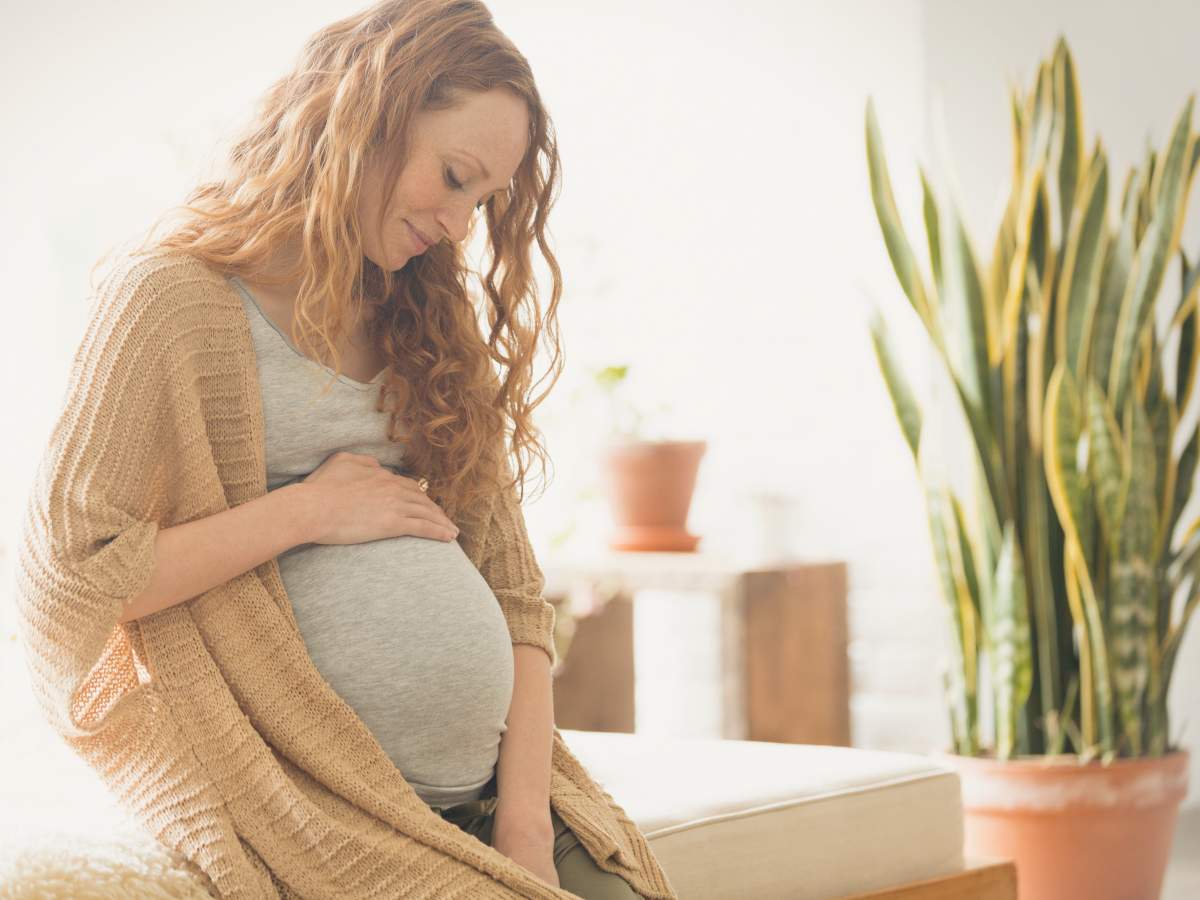Having a baby is equal parts thrilling and terrifying. Aside from the usual worries that accompany impending parenthood — including the extra economic and emotional load — most women are reluctant to share their news until they’re out of the iffy first trimester.

However, for those unfortunate enough to lose a pregnancy they haven’t shared with friends and family, that means shouldering the burden of grief alone.
WATCH BELOW: Vitamin B3 can prevent miscarriages and birth defects

It is estimated that 10 to 25 per cent of recognized pregnancies and 50 to 75 per cent of chemical pregnancies end in miscarriage. (A chemical pregnancy is the very early stages of a pregnancy, before an ultrasound can pick up a fetus, but which can be detected with a pregnancy test.)
“It’s really concerning on a cultural, global and interpersonal level how we handle early pregnancies and their announcement,” says Dr. Jessica Zucker, a Los Angeles-based psychologist who specializes in maternal mental health. “We know that 80 per cent of miscarriages occur in the first trimester, and it’s understandable that health-care providers are giving them that info, but they shouldn’t go further to advise women on when to share their joy. We need support no matter what.”
That’s why Zucker launched her #IHadAMiscarriage campaign in 2014 to end the silence around pregnancy loss, help those who have experienced it get the support they need, as well as end the stigma around miscarriage.

Get daily National news
The idea came to her after her own miscarriage in 2012. Her loss happened after the first trimester, when she had already announced her pregnancy, so she was able to talk about it. But she realized then that the same network of support would not be available to women who kept their early pregnancies a secret.
The first iterations of her campaign resulted in greeting cards for people who don’t know what to say to a woman who’s had a miscarriage, and T-shirts and pins celebrating parenthood after loss. This year, she has collaborated with an illustrator to create a series of prints with the theme “Out of the Woods.”
“For those of us who have experienced second-trimester loss, we all know this idea of being ‘out of the woods’ is a falsified and archaic notion. And for those who have had earlier losses, it’s all a set-up telling women to be silent with their joy at the beginning, and silent with their grief if they miscarry,” she says.
- WestJet execs tried cramped seats on flight weeks before viral video sparked backlash
- Pizza wars? As U.S. chains fight for consumers, how things slice up here
- Health Canada says fake Viagra, Cialis likely sold in multiple Ontario cities
- Flu numbers in Canada remain high but trending down after winter holidays
READ MORE: Why listeria is a bigger miscarriage threat than docs initially thought
What’s worse, we can’t seem to talk to women who have had a miscarriage, which leaves them feeling isolated and alone.
“There is no one way that women respond, and there are no ways that we really support women and their partners through miscarriage,” Christiane Manzella, clinical director of the Seleni Institute in New York, said to the Washington Post. She chalks it up to our “death-denying society.”
According to the American Pregnancy Association, there are a number of things that friends and family can do to help a woman dealing with pregnancy loss, beginning with being open to listening about it.
“A person who has experienced a miscarriage may need to tell his/her story repeatedly. Show you care by your attentiveness, gestures, and eye contact,” according to the website.
Other gestures include being open to talking about the baby, being aware that grief is physical as well as emotional and may manifest in a host of effects including low energy and poor appetite, and encouraging the grieving person to express their pain and stress.
READ MORE: Multivitamin intake during pregnancy could reduce autism risk: study
One thing you should never do is resort to platitudes.
“You should never say, ‘everything happens for a reason,’ or ‘at least you know you can get pregnant,'” Zucker says. “How that lands on the woman’s ears and her heart doesn’t make her feel better.”
She’s quick to point out that she is in no way telling women how or when to announce their pregnancy, but that it’s a personal decision that should depend on the woman and her partner, and not medical statistics about loss.
“A woman needs to be able to decide for herself and not feel like she’s tip-toeing around it because it perpetuates this superstition that if you share your good news, you’ll create bad news,” she says. “Feel free to share your news because no matter what the outcome, you deserve to have support.”










Comments